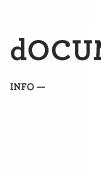Image: The 1950 Pilot ACE as exhibited at the Science Museum, London


Alan Turing: The Enigma is about the “founder of computer science, mathematician, philosopher, codebreaker, strange visionary and a gay man before his time”; about Turing’s personal struggles that led to his prosecution in 1952 for 'gross indecency' and eventually his tragic death, and about his pioneering work in computing (mathematical logic) as well as his contribution to Enigma codebreaking during the second world war.
In 1936 Alan Turing wrote a seminal paper 'On Computable Numbers’ in which he sets out the possibilities of logic machines - what became known as the Universal Turing machine - indeed some ten years before it could be implemented in electronics. Turing manages to describe the processing of information that any digital computer performs: “to replace discrete symbols one at a time according to a finite set of rules”. An earliest attempt to create an electronic computer based on Universal Turing Machine is Pilot Ace (or Automatic Computing Engine) of 1950. Better known is Turing's paper of 1950 'Computing Machinery and Intelligence' in which he makes the claim that computers will be capable of imitating human intelligence, or more precisely the human capacity for rational thinking - what has become known as 'artificial intelligence'. "I propose to consider the question, Can machines think?”
Image: The 1950 Pilot ACE as exhibited at the Science Museum, London